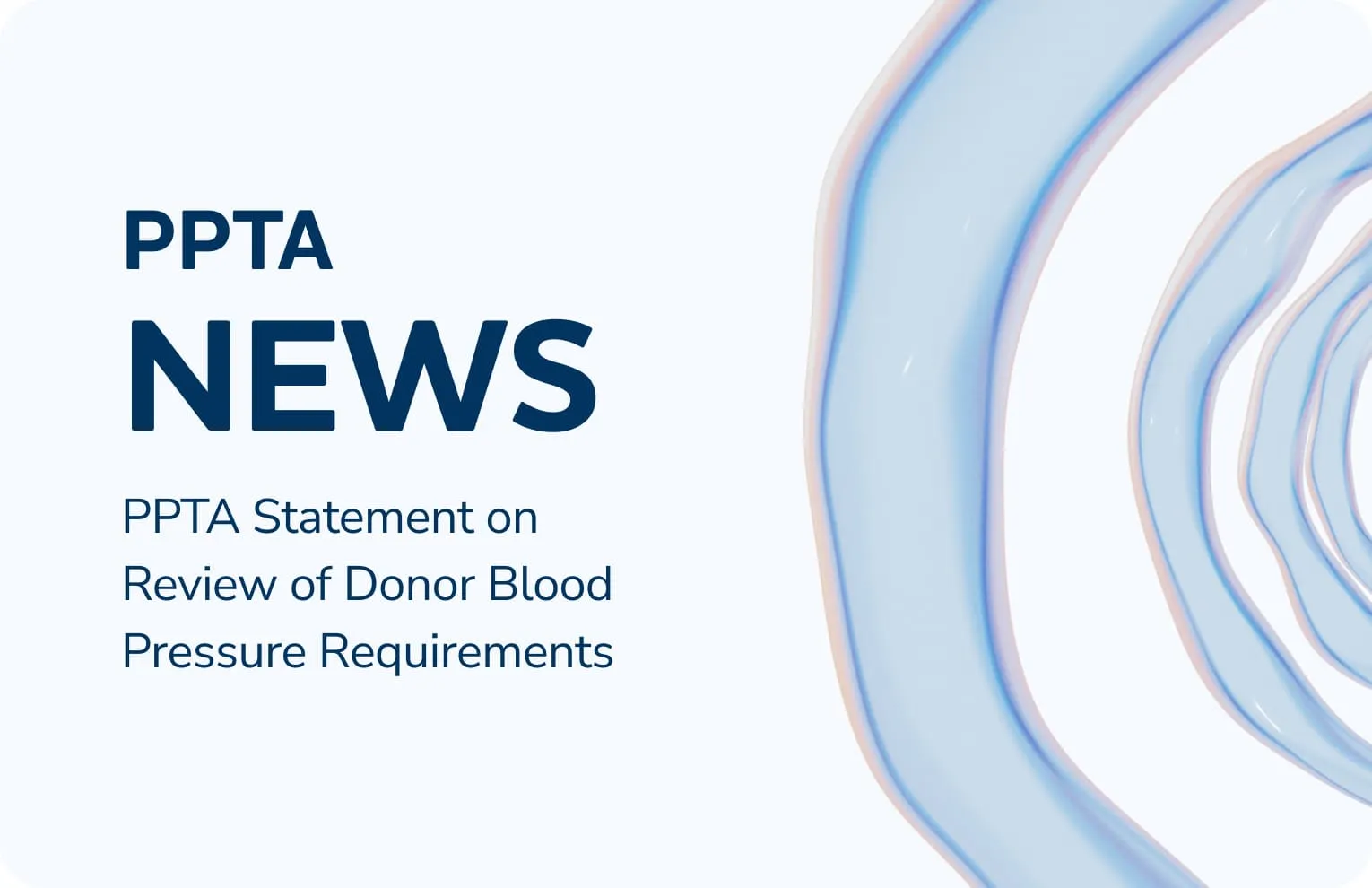The Plasma Protein Therapeutics Association (PPTA) and its member companies are grateful for every plasma donor, each of whom directly contributes to saving and improving the lives of people facing serious, inherited, and life-threatening diseases.
Today, when faced with a significant decline in plasma donations due to the ongoing COVID-19 pandemic, every plasma donor deserves our deepest respect, gratitude, and appreciation, not negative characterizations and stereotypes. Even Ms. Mahdawi understands how essential plasma donation is by noting “it is something we should all do if we can: plasma is desperately needed for life-saving therapies.”
Patients around the world who rely on plasma-derived therapies could not agree more. In fact, because of the sharp decline in plasma donation wrought by the current pandemic, we can reasonably expect that the reduction in plasma collections currently being experienced could cause challenges to patient access in the months to come.
Ms. Mahdawi clearly does not object to compensating plasma donors, “as long it is strictly regulated, the number of donations safely capped, and the pay fair.” This industry is committed to the health and safety of every person who donates plasma at approximately 1,000 plasma donation centers in the United States and in Europe, and it adheres to stringent regulations, both in the U.S. and internationally, so that only those who are healthy enough to donate plasma can do so. Additionally, PPTA member companies’ plasma collection centers are certified by the International Quality Plasma Program, a rigorous, voluntary program that goes beyond regulatory requirements to help ensure donor safety. Although different countries have varying regulations regarding plasma collection, no single regulatory scheme is better than another; all regulations are in place to ensure donor safety and the safety and efficacy of the finished therapies.
While people’s reasons for donating their plasma are as varied as the diseases treated by access to plasma protein therapies, it is true that some people do so to lessen financial stress or to earn some extra income to help friends or loved ones. A letter published in 2018 by more than two dozen ethicists and economists explains that compensating donors is ethical and is intended to recognize their commitment and inconvenience.
Quite simply, plasma donors save lives, and PPTA, its member companies, and patient stakeholder groups worldwide continue to advocate with local, regional, national, and international authorities to address donation shortfalls seen because of the pandemic. Further, we are using our collective voices to raise awareness of the urgent need for plasma donation. While we are glad that Ms. Mahdawi recognizes how essential plasma donation is for countless individuals, perhaps she would consider using her editorial space to urge her readers to donate by helping them understand how essential they are and how urgent the need is, rather than insulting and victimizing plasma donors and the patients who rely on plasma-derived therapies as part of an attempt to critique public support programs.
Created on October 22 2020.





